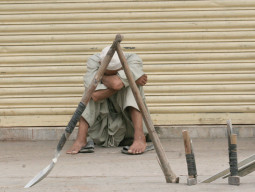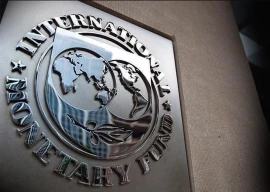
The law enforcers in the city have stepped up their game to arrest criminals in the city, as also acknowledged by the judges of the Supreme Court during the Karachi law and order suo motu case. The plan to increase the number of special Anti-Terrorism Courts for speedy disposal of cases, however, is still in a limbo.
The Supreme Court has repeatedly observed that the number of the courts needed to be increased to restore peace in the city. According to records, there are 36,000 absconders and proclaimed offenders in Karachi alone, while more than 5,566 cases registered under the arms and explosives act are pending trial before the courts, including the ATCs.

Chaired by Prime Minister Nawaz Sharif, the federal cabinet in consultation with the provincial government, had decided on September 4 to take various steps, including increasing the number of ATCs.
The government was quick to announce the establishment of five new ATCs but has been unable to follow through. “Early last month, the home department requested the chief justice of the Sindh High Court to nominate district and sessions judges as presiding officers of the five new anti-terrorism courts,” an official told The Express Tribune. “Currently, there are five presiding officers appointed to the already functioning five anti-terrorism courts, while another 15 additional district and sessions judges have been granted special powers under the Anti-Terrorism Act 1997 to hear and decide the cases involving offences that fall within the ambit of this law,” a judicial source told The Express Tribune. The SHC chief justice had conferred special powers in compliance with the Supreme Court’s directives in March to ensure the quick disposal of cases. “The SHC extends these powers from time to time,” said an official in the SHC’s registrar office.
Judicial sources have cited the shortage of judges as one of the main hurdles in the establishment of the ATCs, saying that the high court was considering promoting judicial officers to meet this shortfall.
Government’s inefficiency
That, however, is not the only problem as sources also stated that the provincial government lacks will to establish new ATCs.
The judicial sources claimed that while the government through the home department had sought nominations of the judicial officers for appointment to the courts, they have yet to be finalised.
“The government has not provided any space for setting up the proposed courts, which is the main hurdle for the project to materialise,” an official told The Express Tribune.
No specific building or other facilities have been arranged by the government, the sources said.
Judicial officials believed that after the establishment of the five new ATCs, the burden on the already functioning courts would lessen.
Published in The Express Tribune, October 31st, 2013.
1725609157-0/Tribune-Pic-(6)1725609157-0-405x300.webp)

1725608800-0/Untitled-design-(19)1725608800-0-165x106.webp)
1725608005-0/Untitled-design-(18)1725608005-0-165x106.webp)



















COMMENTS
Comments are moderated and generally will be posted if they are on-topic and not abusive.
For more information, please see our Comments FAQ